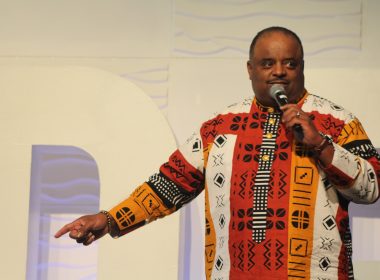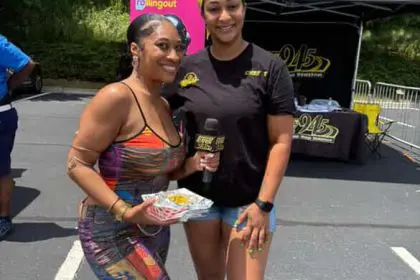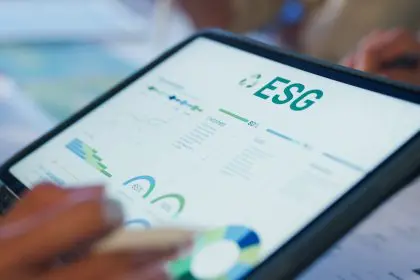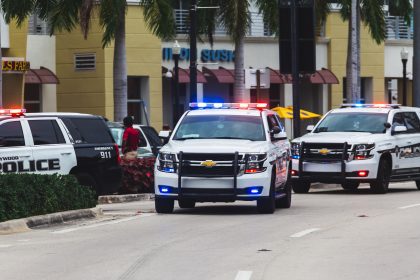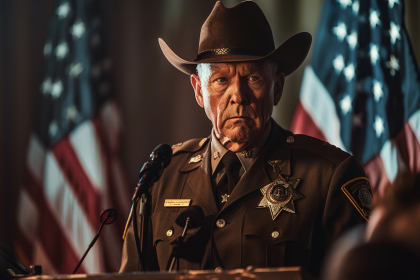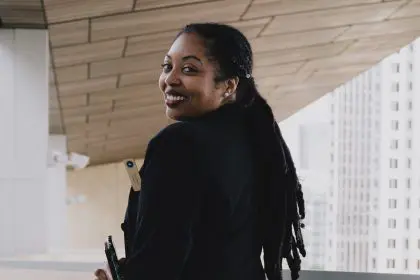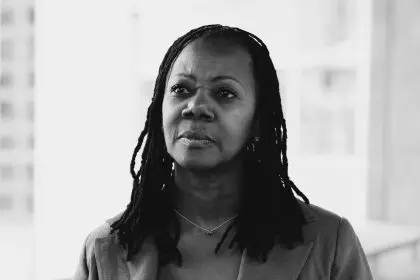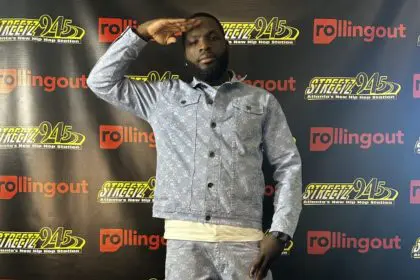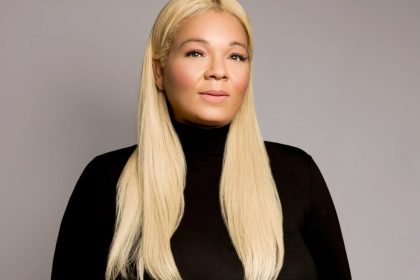Melissa A. Mitchell is a powerhouse Bahamian artist. She is self-taught and determined to infuse her vibrant creativity into the world. A two-time graduate of Florida A&M University, Mitchell has carved a unique niche, blending art, technology, and fashion on a global scale. Known for her collaborations with renowned brands such as Foot Locker, SPANX and Hennessey, her work has adorned celebrities like Lupita Nyong’o, Tabitha Brown and Pinky Cole. Over the past decade, she’s created an immersive art experience through her wearable art and luxury goods, with her signature motto, “Create to Heal,” reflecting her mission to bring optimism and healing through her creations.
With more than 500 original art pieces and 40 murals, her influence extends across the fashion and design worlds, with features in Forbes, Vogue, and Essence. Melissa’s work, from vibrant headwraps worn by stars to impactful murals, tells a story of cultural pride and creative excellence. Her partnerships with iconic brands like Hallmark, Peloton, Cadillac, Microsoft, and Pepsi continue to solidify her as a trailblazer in the industry, while her books, including Black Love Notes to Self and Views from My Kaleidoscope, inspire readers to embrace self-love and creativity. Mlissa Mitchell’s undeniable talent and heart for community and art make her a force to be reckoned with as she continues to build an enduring legacy that transcends borders.
Here she chats with Munson Steed about her trajectory and excitement about the Atlanta Symphony Orchestra’s second annual HBCU AccessFest, which connects young people to opportunities in higher education, mentorship, networking and career paths. The free college and career fair will take place on Sept. 21 at Woodruff Arts Center.
[Editor’s note: This is a truncated transcribe of a longer video interview. Please see the video for the extended version. Some errors may occur.]
When you think of creativity and design, how important is art to designing the reality that we have today?
Art is very important because if you read history books and look back in time, there was always somebody scribing. There was always somebody on a tablet. When I went to Egypt, [I learned that historically] one of the highest people in the court of law was the artist. They sat to the right hand of the king because they were the only ones able to tell the story when everybody was gone. So, if you see artists around, that’s a good sign you’re somewhere where history is being made.
What do HBCUs, AccessFest, and the Atlanta Symphony represent in terms of cultural exchange and recording a moment in time for our community?
It lets kids know there’s a place for an all-Black space. I went to Florida A&M, and for a while, I was like, “This must be utopia—this isn’t real, right?” Then I came to Atlanta and realized this is just another HBCU on steroids. When you have a Black space where your teacher is Black, your classmates are Black, it teaches you that excellence comes in all colors, but specifically yours. You’re able to go into spaces as big as the orchestra—spaces that were typically not for us. It lets you know your HBCU upbringing wasn’t a fantasy, but real life. Now, I get to leave that comfort zone of being in an all-Black environment and sprinkle my Blackness everywhere I go.
What do you want young people to know about their future professional prospects?
I want them to know they don’t have to wait to follow their dreams. I found my calling in art later in my thirties and later in life. A lot of times, we’re told to go to school and focus on school. But I think we’re going to save them a lot of time by telling them they can start right now. And if they fail, at least they started. A lot of people feel like they can only focus on one thing and be great, but we’re going to show them on the panel that many of us started careers and found another career while we were in our careers. They don’t have to wait to be an artist, singer, dancer, or entrepreneur. Two things can be true at one time—you can chew gum and walk. You can be a painter and an IT professional, because I did it. Others on the panel will show them you don’t have to be a monolith. You get to be everything. You don’t have to do just one thing, and I want students to know that.
As a graduate, what would you share with parents and students about the advantages of attending FAMU?
First and foremost, your network really becomes your net worth. Everywhere I turn, there’s a Rattler doing something significant—from the mayor of Atlanta to the steps of the White House, to art in Times Square, to clothing in Foot Locker, to head coaches, principals, doctors, and lawyers. The people to your left and right will be decision-makers throughout the world as you go through life. Never underestimate who you befriend freshman year. Never take a moment for granted, because that person in the library may be your lawyer one day. Everyday I talk to a Rattler in some different facet of life. They’ve gone to school with me, know my father, cousin, or uncle. My Rattler network has fueled my success. Even this conversation was through a Rattler connection. When you go to an HBCU, you’re not just getting an education; you’re getting life skills. Your confidence is built up. FAMU starts using words like “matriculation,” and you think you’ve got it going on. You learn things outside of the books. An HBCU education has afforded me the confidence and the ability to dream beyond the right now in a way I couldn’t have gotten anywhere else.
What do you think it means to the Black community to know there is a place where our entrepreneurs can go to get support from top institutions like RICE and the Atlanta Symphony?
When you think about brands like Walmart, Target, UPS, and Comcast—they’re saying, “Hey, we appreciate your business, but how can we support you?” It lets us know that our buying power is not in vain and that we’re actually recommitting our dollars back to things that make sense to us. We’re being empowered to do things beyond the norm. Being empowered by billion-dollar companies gives you confidence as a business owner. If you don’t get it right, there is support, and if you don’t know how to do it, they’ll support you in that too. I love how these big brands are embracing the Black voice, creativity, and talent because we move culture. We move the needle of what’s cool and what’s not, how you wear your hair, the slang you use, how you wear your glasses—all of it comes from Black culture. It’s amazing how we’re now having full-circle moments …
I’m so grateful to be a part of many of the RICE programs and the moments of elevation I’ve experienced. I wouldn’t have gotten that sitting in my comfort zone or at my desk at a regular job. They’re saying, “Hey, take the leap of faith, and we’ll hold your hand the whole way.” From RICE to the Atlanta Symphony, there’s no excuse not to be successful. We have all the tools we need right here in Atlanta to do what we need to do. It’s encouraging to know that someone like the Atlanta Symphony is doing more than just playing music and closing down on a regular day.
Talk about our community as an “orchestra.” How do you play your part and what do you expect of others?
I love what you said about being in an orchestra, but an orchestra is only an orchestra because every instrument is being played in a symphony. As we, as business owners and as Black excellence, move in our spaces, we can’t always look at the bigger picture—we need to look at the picture we’ve been assigned. I know I go through life thinking, “Man, I wish this were different. I wish that were different.” But instead of focusing on that, I move in my own Black excellence, doing what I’m called to do, playing my own instrument. I play my sound, and I look to my right and left, and when others are playing their sounds, we’re in harmony. As we follow our gifts and the voices guiding us, that’s when it becomes an orchestrated sound within the community. But we can’t worry about whether someone else is playing their notes or not; we’ve got to focus on our own music and our own sheet. As you follow your gifts and do what you’re called to do, your instrument is what God is looking for. There are so many analogies you can use for the orchestra and the Black community because we are musical beings. When you go to the orchestra, there are many instruments, but there’s one sound, one harmony, one beat. If we all get on one accord and do what we’re supposed to do, there will be one beautiful sound that moves our community to a new beat.
What does it feel like right now to be moving in a moment where you are seen, and you, as a woman, are able to take up beautiful space knowing that you don’t have to defend yourself to the world or carry the world, but just be your beautiful, bold, super-powered self?
When you know that you’re empowered to just show up and be yourself without having to worry about the chaos of the world, your artistry is different. I can paint with ease, not worrying about other things. When I’m getting a $50K grant from the [Russell Innovation Center for Entrepreneurs], I don’t have to worry about how I’m going to make inventory or payroll because the money is taken care of. Now, I can focus on being creative. When you’re empowered financially, spiritually, and emotionally, it allows you to show up differently as a creative. We live in our heads. Now, the melodies are clearer, the designs are clearer, and we show up with a different level of creativity because we now have the clarity and peace of knowing that our business will run while we do many things. As a solopreneur, I hire a few people, but it’s all coming from me—I’m the president, the CEO, the marketer, the secretary, all the things. When you have the support you need, you can take off some of those hats and jackets of responsibility and just show up as the creative you always wanted to be without stress. It’s really empowering.
Lastly, when you give your graduation speech at FAMU, and you’re there to challenge them, what would the title of your speech be? What would be two things you would want Rattlers, other HBCU graduates, and just individuals of the community to know they are called to do?
I think the quote that’s on my [e-mail] signature right now is, “If you want to do things differently, be prepared to do things differently.” That’s the essence of saying people want different outcomes, but they’re not willing to change. They’re not willing to step up and be the change they want to see. I love Nike; it’s one of my favorite brands [because its motto explains that] you just have to do it. You have to do it without worrying about the “how” and just know the “who.” And the “who” is you and who you’re connected to. A lot of times graduates are always trying to figure out the next step—how to do this, how to do that. But many times, opportunities show up because you’re ready for them. You don’t have to worry about how it’s going to work out. You just have to show up. Even this opportunity we have here—I was ready for it. I do my own speeches every day, one or two minutes on my phone, and I practice speaking to myself. I said, “When I get interviews, I’ll be prepared to speak fully, with all my thoughts.” And guess what? The opportunities always show up. I think students need to understand that opportunities are there. You don’t have to worry about how crowded the field is, how many people are doing what you do, or who’s going to call you. The opportunities will show up when it’s time, and you’ll be ready for them.

